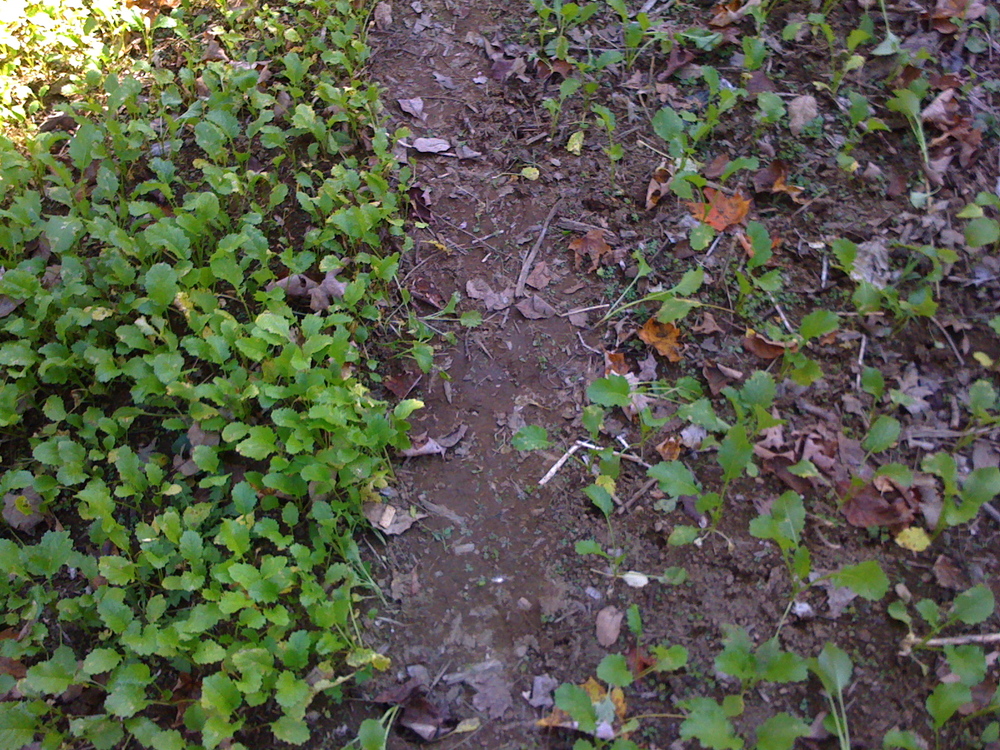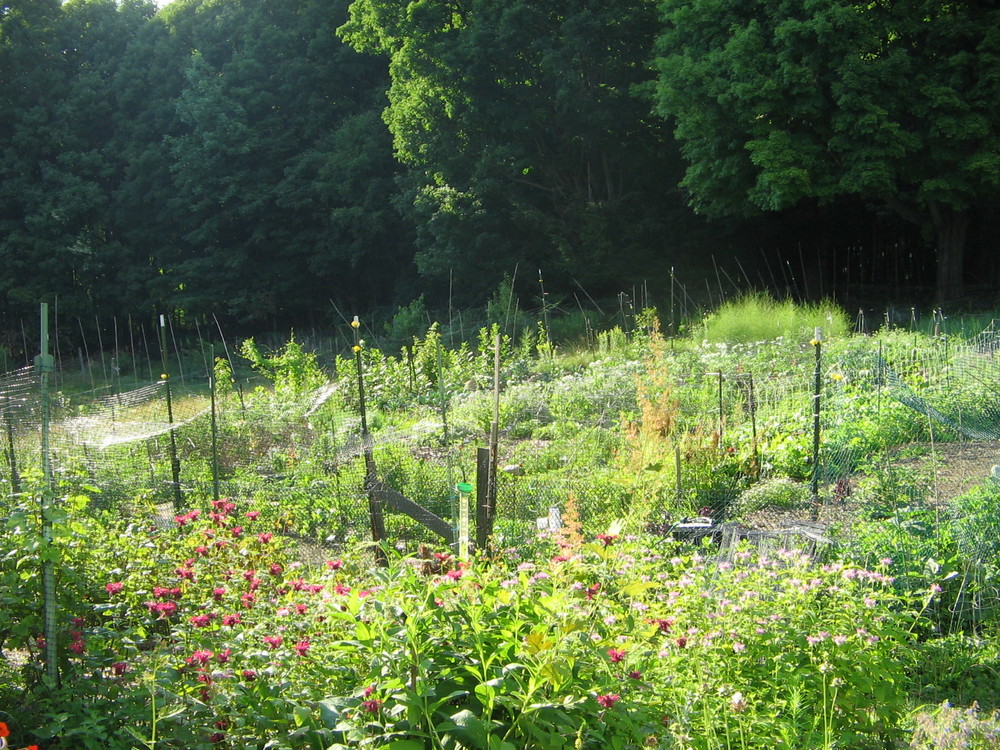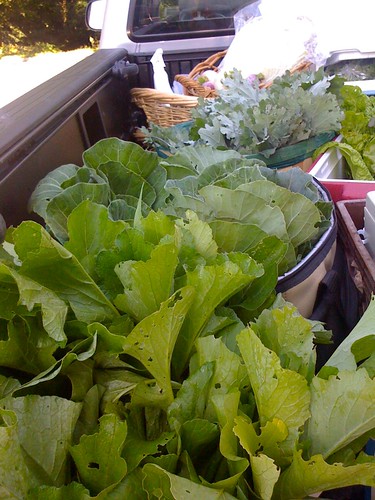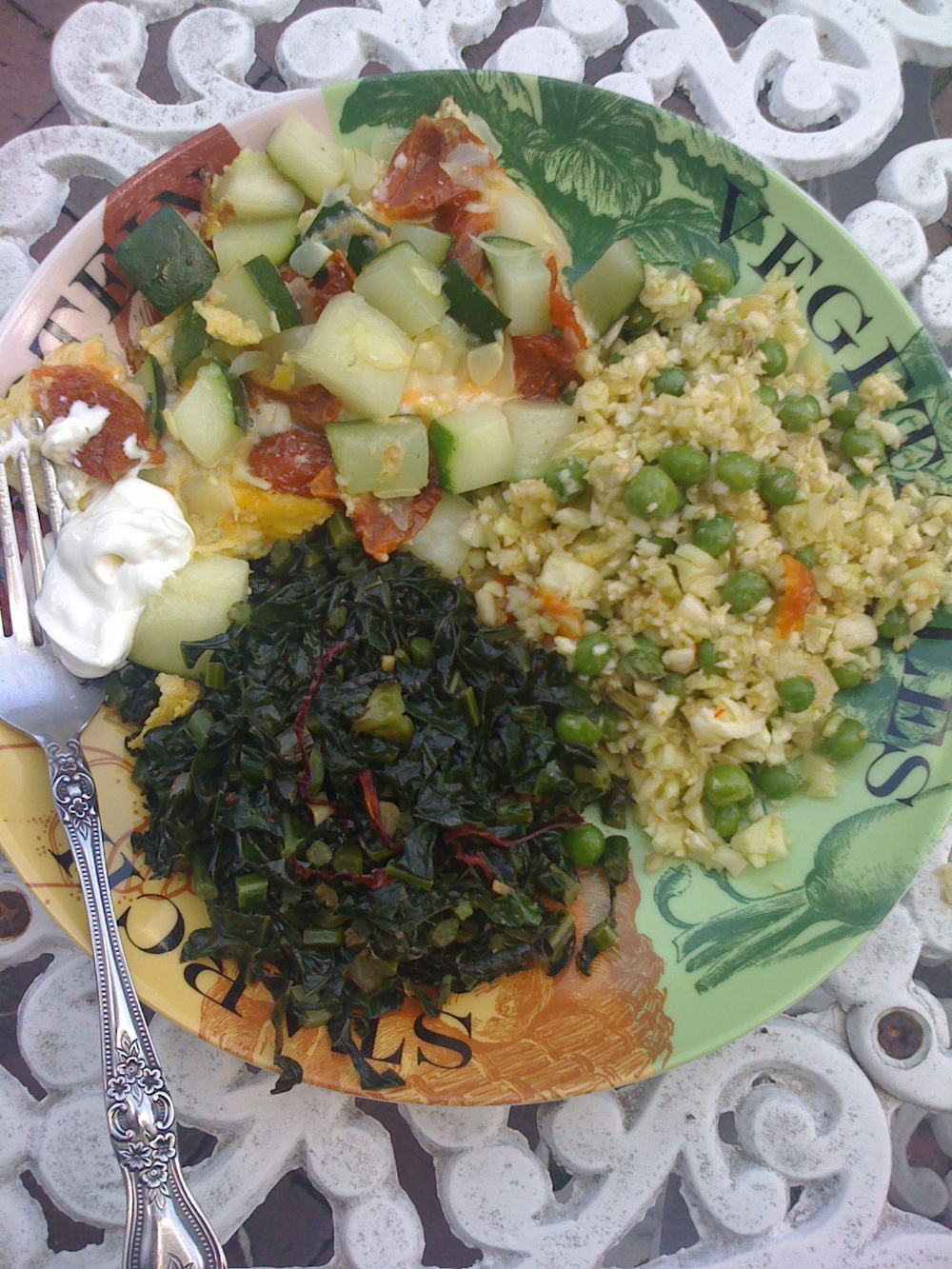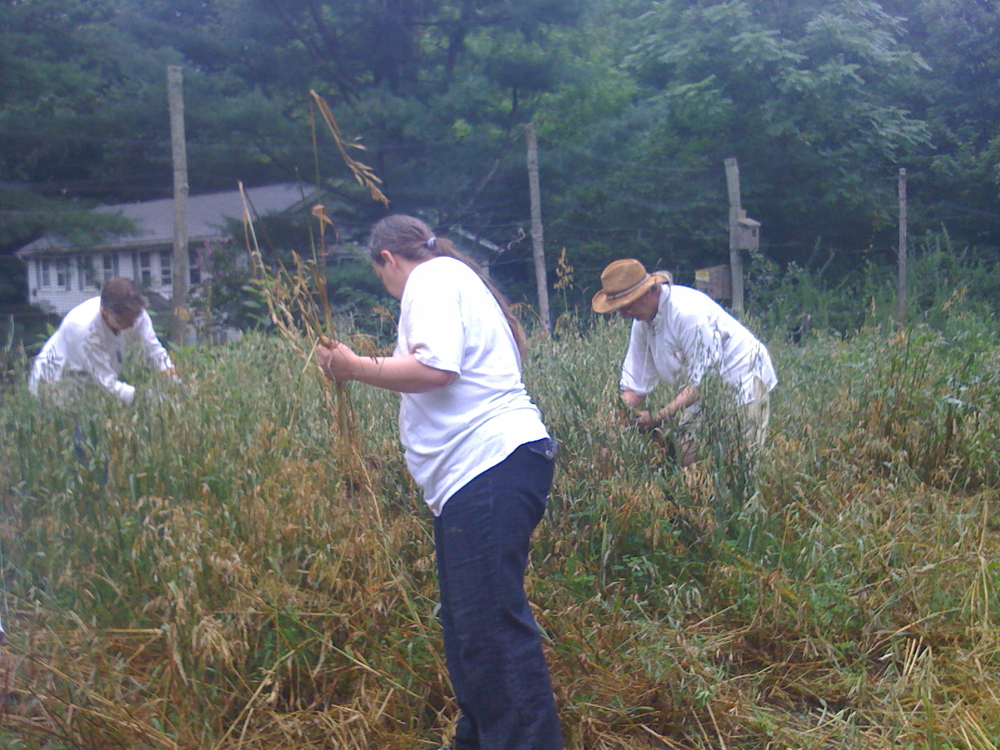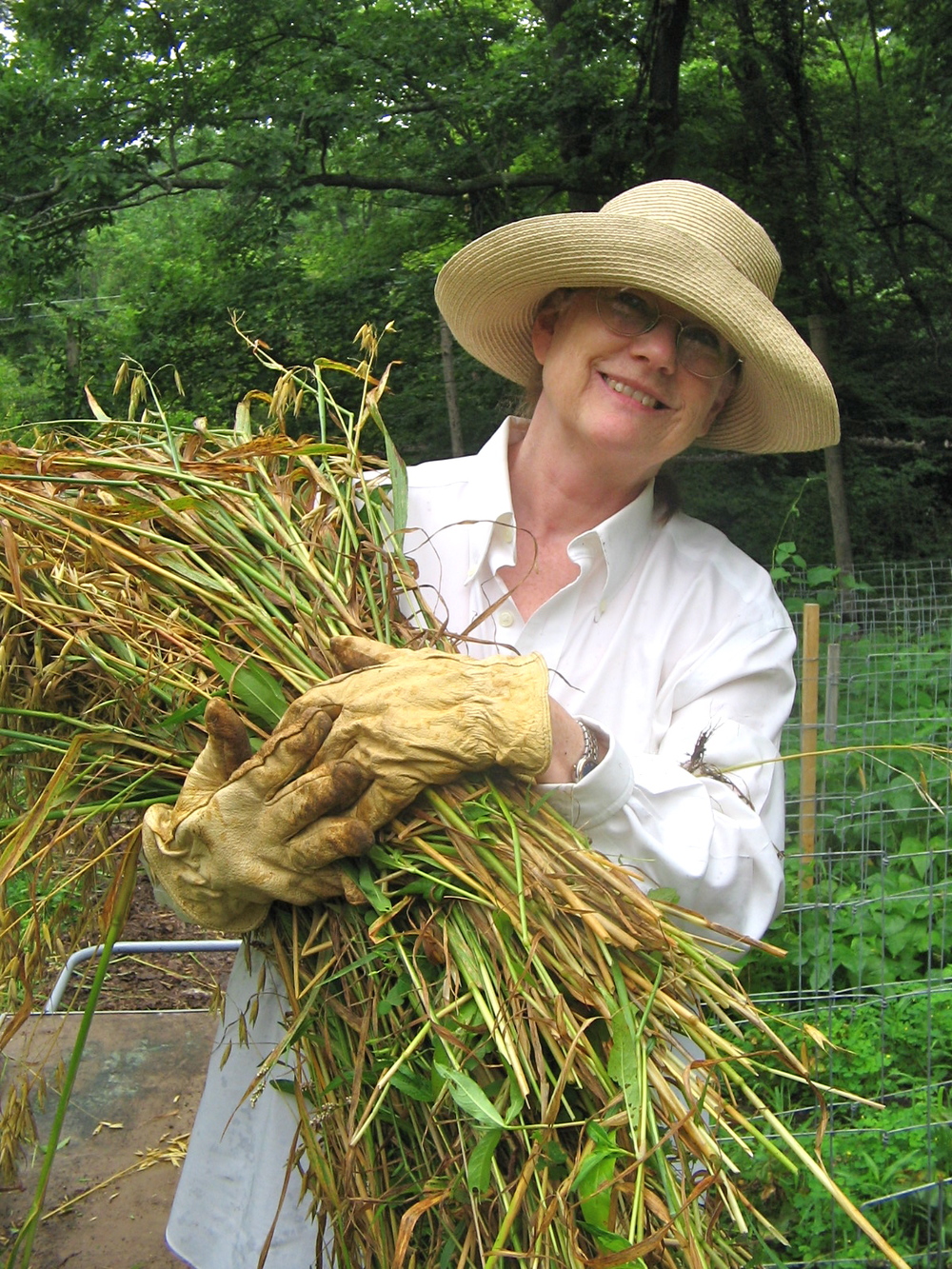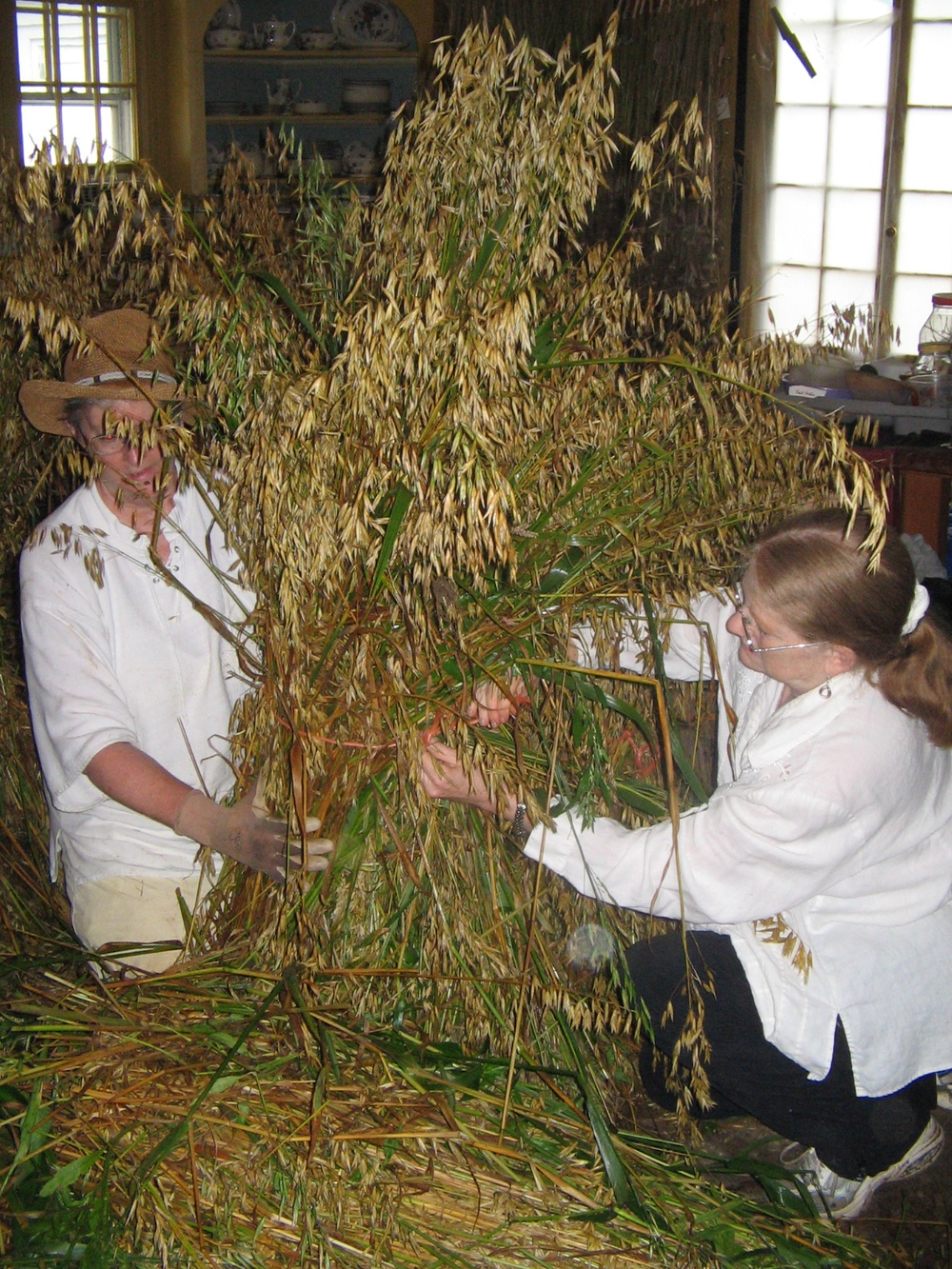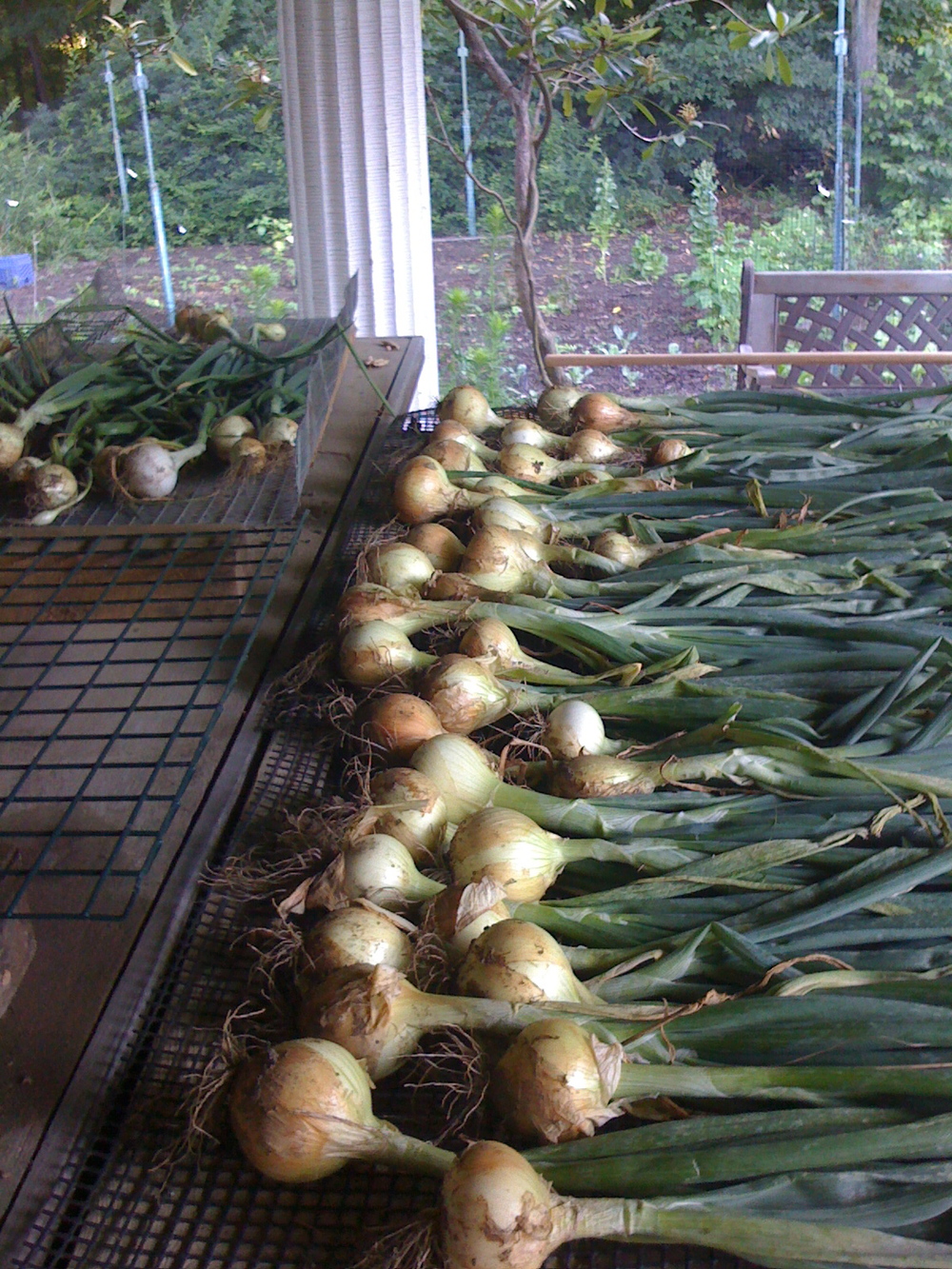There’s a technique in gardening called “thinning.” If new baby plants are coming in close together, you pull out a few of the plants in order for the others to flourish. In one of our gardens, a broccoli raab plant had gone to seed in late summer, and dropped hundreds of seeds in an area about 7’x10’. Hundreds of baby plants came up, and I spent one morning removing some of them and leaving the strongest, healthiest looking in the ground, with about 4” of space between each. Thinning plants gives you some tender greens to eat while the plants mature, and allows for the remaining plants to make the most of the available nutrients in the soil. I wasn’t able to finish the whole patch that morning, and when I went back recently the difference was striking: where I had thinned, each of the plants was sturdy and a strong green, while the others that were still packed in close together fared less well. Some were pale, withered or stunted, others had brown spots. That patch of soil simply couldn’t nourish all of those plants…they needed attentive tending, pruning, thinning.
I’ve been thinking about thinning in relation to my own growth lately, what it is I’m removing, what it is I’m trying to help flourish.
There were clear choices to be made when I prepared to leave a stable job, to depart from a recognizable career path. Anne and I knew our financial situation was going to change, and that we would need to discern what really mattered to us, and what didn’t. In some ways, the economic crisis that became apparent in September 2008 helped me begin preparing to make these changes, as I began to take stock, go frugal, and begin saving in earnest. Buying non-processed food, cooking almost all our meals, curtailing our shopping, repairing instead of replacing, getting rid of cable…all of these helped me get clearer on how I wanted to live, what I valued. Those were some easy plants to thin.
And since I began coming to the farm in March, and more intensely since I moved here in August, I’ve been occupied with doing another kind of “thinning.” It’s like I entered a kind of natural New York Public Library, with stores of knowledge available to me, and I’ve been winnowing through the possibilities and picking out a few stacks, at least to begin with. I now see that there’s many ways to be involved with the “good food revolution” as Will Allen calls it: food policy, food activism, food-related public education, food distribution, commercial production, community-supported agriculture, and “homesteading” (small farms, to feed family and neighbors, possibly with some farmer’s market activity). For me, I think my heart is drawn to the idea of homesteading, which is basically what we’re doing here at Bluestone Farm. We grow our own food, from corn and oats to honey and eggs, from bok choi and kale to kidney beans and celery. Herbs and spices, roots and greens. We save our seeds and tap our own maple trees, make our own hominy and our own yogurt. And the Sisters are learning to weave scarves and cloth towels, with visions of weaving their own simple clothes.
I still entertain the idea of diving deeply into a specialty, perhaps medicinal herbs, or mushroom cultivation, but I’ve always been kind of a generalist and I’m strongly interested in systems. I am pretty clear now, based on what I’ve learned so far, that I’m most drawn to learning how to grow a wide variety of vegetables, how to preserve and store foods, and how to plan a diverse garden throughout a whole year’s cycle. I’m also interested in learning which plants flourish together, and which insects and flowers work in harmony with a vegetable garden. And what I really value is being off the grid, being healthy, feeding and cooking for my friends and family, having a spiritual practice, and making a simple living.
Those kinds of thinning have been pretty easy, I see now. Although life here is pretty packed, there is time to meditate and pray every day, and in that spaciousness I have come to perceive that there’s more thinning to be done. A kind of gnarled psychic understory, complete with dead branches and thorns, is in competition with all these new young plants I’ve been cultivating. I think I naively believed that I could just press the “restart” button on my life when I came to the farm, and that the rhythms and the rituals here would shape me into the person I want to be, the person I know I am (somewhere deep down!). I easily managed to bring only a few small bags of clothing, and a handful of books. Turns out I just as easily brought a bunch of less useful baggage as well: insecurities, fearfulness, embarrassment, cynicism, doubt.
I saw this all too clearly just recently, and the abrupt recognition of this old baggage actually caused me to laugh out loud. The last few months, I’d been spending a good portion of my free time exploring various finance-tracking software. I tried a bunch: Mint, Moneywell, Quicken, Moneydance, various Excel spreadsheets, and more… I began the project with the notion that, in addition to monitoring our new budget, if I had a better idea of how we spent our money I could see if we could save even more. All well and good. But somehow that question got twisted up with various attachments and fears…See, I had saved up a bunch of money before I left my job, in order to be able to pay my not-insubstantial student loan payments every month. I put that money in an account, and thought that these funds would provide me with some security, some freedom to really explore what I want to do in the world, to find my new path. But somehow that money just seemed to loom larger in my mind, until it was nearly yelling: “what will you do when I’m gone!” Because I am trying not to live out of fear, I kept just pushing that thought away. And then going to the computer and playing with financial software. I was getting more and more frustrated, as no one software seemed to do all the things I wanted it to do: track every expenditure, update automatically, show all the balances, create detailed budgets and reports…I spent hours manually categorizing various expenditures, correcting items, trying to convert a csv file to a qif file…on and on…None was meeting my needs, I was getting more and more frustrated, getting stressed out…losing sleep.
And then it hit me. I was trying to find a perfect software that would somehow alleviate my fears about the future, about how I would pay next year’s student loans. And no software was ever going to do that. I had more money in my savings account than I’d had in years, and yet I was stressing about how I was going to pay bills a year from now. When was there ever going to be enough? Was I worrying about money just out of habit? I saw, in an instant, that my anxiety about money is related to a larger, deeper lack of belief in abundance, and that no amount of accounting can dispel that fear. And then I just started laughing at the ridiculousness of it all. How many hours did I spend, trying to fill in a hole with bubbles? Driven by doubts, I push so, so hard to arrange the world, toiling in vain attempts to ensure that things will turn out ok. I’ve got to learn new ways of being in the world, of having faith and trust that good things will come. So here I am, working to clear out this old, old, old brush, to find the stillness within, to cultivate the good soil, and to flourish. Keep those garden gloves nearby, I may ask for your help.

